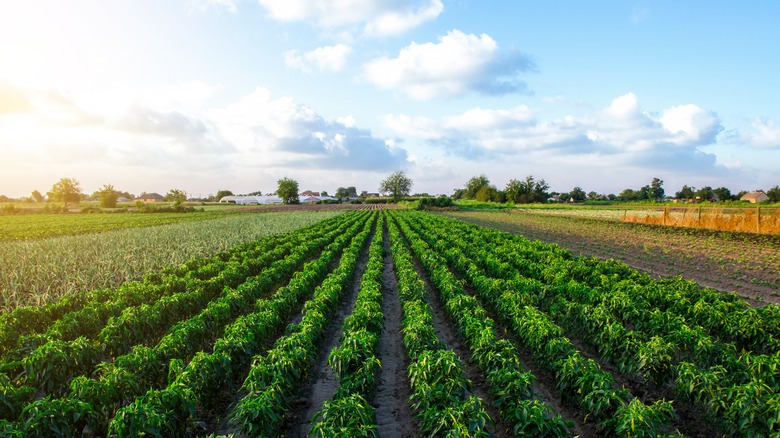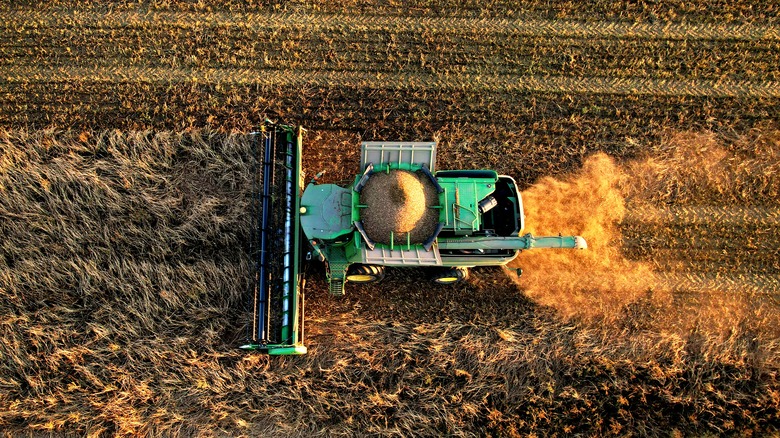Projected US Crop Yields Just Took A Turn For The Worst
As the cost of groceries continues to put economic pressure on families across the U.S., lower-than-anticipated American crop yields could lead to additional increases in already sky-high food prices, experts warn.
The U.S. Department of Agriculture's latest crop production report — which provides estimates for the planting and harvesting of crops like cotton, corn, soybeans, rice, sorghum, peanuts, and chickpeas — indicated that the total yields of crucial crops like soybeans and corn were down from the previous year.
The report, which was released earlier this week, surprised agricultural experts after predicted harvest quantities failed to meet expectations set by crop forecasts released by the USDA's National Agricultural Statistics Service (NASS) in August. Although NASS initially reported that the 2022 corn crop was "in good or excellent condition," the crop production report indicates that corn production for grain is down 8% from 2021, 3% lower than predicted.
Soybean production also failed to meet expectations — despite predictions that the soybean harvest would reach record highs — at just 4.38 million bushels, 3.4% lower than anticipated and down 1.3% total from 2021. This unexpected dip in the production of America's two largest crops took analysts and investors by surprise (via Alberta).
Hotter-than-average weather is likely to blame for the slump in crops
"People were not positioned well for that kind of a cut, and the market showed their surprise," said Brian Harris, executive director of Global Risk Management, to Food Business News. One of the primary factors in the lackluster crop production was extreme weather conditions, resulting in little-to-no rainfall and above-average temperatures across the corn belt over the last 30 days.
The underwhelming crop production report came during an already fraught week for American farmers, as a looming railroad strike threatened to shut down railways across the nation. Although the Biden administration reportedly reached a tentative deal earlier today, narrowly avoiding the shutdown, agricultural leaders warned of the catastrophic ramifications of a shutdown of the agricultural industry's primary mode of transport (via CNN).
"A rail stoppage... would hit right as the fall harvest accelerates in many parts of the United States," said Mike Seyfert, president of The National Grain and Feed Association (via Food Business News). "The economic damages across the food and agricultural supply chain would be swift and severe."

